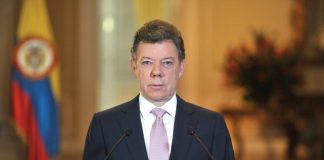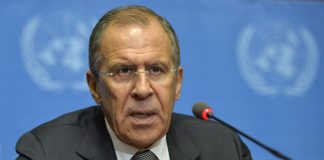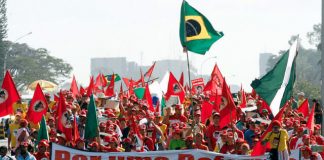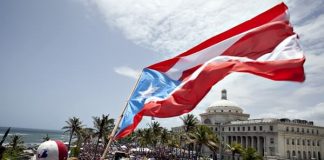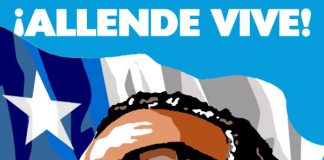Latin America
Turkey: Oncology and Geopolitics
Like the Russian president, Mr. Erdogan did not shrink from challenging the existing status-quo, claiming for Ankara the status of leader of the Muslim world. From the point of view of the Western elite, both of these politicians have signed their own death warrants with such declarations.
The Hypocrisy of Awarding a Nobel Peace Prize to Juan Manuel...
The establishment picks its winners deliberately, according to their interests. They have done it before when they awarded the prize to the two greatest ideologists of the genocide of the Palestine people: Shimon Peres and Isaac Rabin, or to Barack Obama, who went on to spread the US war in the Middle East and maintain the torture center of Guantánamo.
Russia Reasserts Itself
The Russian Foreign Ministry Lavrov speaks of “radical changes” in relations with the United States. Russia is upgrading its military presence in the Middle East.
Moscow is also considering the reopening of its military bases in Cuba and Vietnam
Colombia Votes ‘No’ on Peace Accord, Country’s Future Uncertain
he surprising results—which went against all exit polls that had the "Yes" vote winning easily—are showing that the areas most affected by the conflict have overwhelmingly voted "Yes" for peace. For example in the heavily affected area of Choco, with 95 percent of the vote counted, 79 percent voted "Yes." The Caribbean provinces have also voted "Yes."
The MST leader on the situation in Brazil
We, the Brazilian working class are going through a very difficult moment, especially for the left. We’re coming from a period that we in Brazil call “the decline of political struggles”. Obviously, over the last three years the right managed to accumulate much more strength, because it made an important alliance with conservative sectors of the judicial power and of
Wall Street Vultures Descend On Debt-Ridden Puerto Rico
‘Any “bailout” that might occur … seems directed only at the Wall Street vultures who now control most of the debt,’ Déborah Berman-Santana tells MintPress News in a sprawling interview about the debt crisis in Puerto Rico.
Trade Agreements and the Globalization of Fascism
In recent years, there’s been a trend toward democracy and market economies. That has lessened the role of government, which is something business people tend to be in favor of. But the other side of the coin is that somebody has to take governments’ place, and business seems to me to be a logical entity to do it.” David Rockefeller
Leader of the Congress of the Peoples Murdered in Colombia
We regret to inform and denounce to the world that in the afternoon of Sunday September 11, 2016, Néstor Iván Martínez, member of the Congress of the Peoples and Spokesman of the Dialogue Commission was murdered in the region known as Centro del César.
Kissinger assasinates Allende inaugurating neoliberalist era
USA kills Chilean President 1973 (Chile 9/11) - Video
“From Memory to Power” March in Chile on the Anniversary of...
With the participation of several political and social organizations and over 200 self-convened people, a march named ‘From Memory to Power’ was held on September 11, 2016, on the anniversary of the military coup. It started at 11 am, at the General Cemetery (a symbol of memory) and ended at the Plaza de Armas square (a historical scenario of rebellion and

